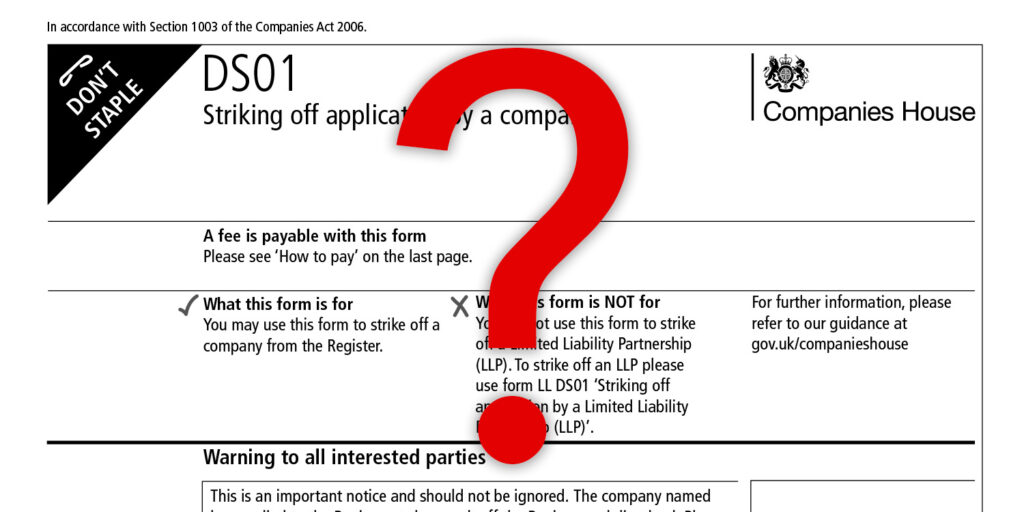When you apply for a company dissolution, you are asking Companies House to strike off your company from the public register. The company then ceases to exist – in other words, it closes.
If you are considering dissolving your limited company, you may be wondering if you should still file a confirmation statement and annual accounts. These filing obligations typically apply to all limited companies, whether trading or not, so let’s take a look.
Filing your confirmation statement and annual accounts
Before sending your completed DS01 – Strike off a company from the register form to Companies House, it is good practice to file a confirmation statement and annual accounts. However, it is not compulsory.
If you are dissolving your company because your annual accounts are overdue, and you would rather close the company than pay the late filing fee – you will obviously still incur a penalty if you do proceed to file annual accounts.
You can’t always apply for a company dissolution
There are some instances where you can not dissolve your limited company. For example, if:
- You have traded in the last 3 months
- Changed company name in the last 3 months
- Legal proceedings are being brought against the company
- The company is going into liquidation (or is already in liquidation)
- The company has entered into a credit agreement
We can help you file a confirmation statement, dormant company accounts and company dissolution
Purchase one of our services and our team will take care of your filing in a timely and efficient manner – ensuring your company is fully compliant.
See the links below for more information on the services we offer at 1st Formations:
Thank you for reading. We hope you have found this post helpful. Please leave a comment if you have a question about anything mentioned here, or limited companies in general. Explore the 1st Formaions Blog for more guidance and advice.
Please note that the information provided in this article is for general informational purposes only and does not constitute legal, tax, or professional advice. While our aim is that the content is accurate and up to date, it should not be relied upon as a substitute for tailored advice from qualified professionals. We strongly recommend that you seek independent legal and tax advice specific to your circumstances before acting on any information contained in this article. We accept no responsibility or liability for any loss or damage that may result from your reliance on the information provided in this article. Use of the information contained in this article is entirely at your own risk.








Join The Discussion